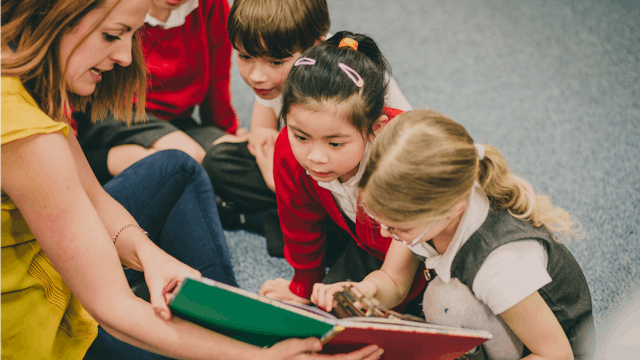How Teachers Have The Power To Help -- And To Hurt -- Children

We are taught from a young age to recognize bullying from our peers and to stand up against repetitive hurtful actions. But the recent Chicago Tribune investigation on sexual misconduct by Chicago Public Schools teachers has brought a new question to light: What about when that harassment comes from a trusted adult?
School employees have a unique power over the future of students. They determine the grades that establish a student’s eligibility for college, extracurricular programs, and scholarships. They have unchallenged control over the material that students learn, preparing them for academic and real-life challenges further on in life. Perhaps most important, teachers have power over students’ self-confidence with academic material, in the classroom and throughout their lives. This influence is almost always a positive, encouraging influence, yet in outlying situations, can result in an abuse of power in other forms than sexual misconduct.
In my personal experience as a CPS high school student, I have seen teachers with inexplicable resentments against students take devastating action against their self-confidence. One high school student that I knew closely struggled with the hostile environment his science teacher had created: one where classic classroom favoritism morphed into a tornado of prejudice, and he suffered failing grades, blatant classroom humiliation, and eventually departure from the program. This is not an isolated experience: favoritism of any kind in the classroom causes loss of self-esteem and loss of interest in the subject.
Another friend struggled with administration in an elementary school: an entire class was told by a principal to be “grateful for what they had” when they questioned about being denied without reason the privileges that other classrooms were granted. They were publicly embarrassed in front of their peers and discouraged from questioning unfair opportunities.
I personally have been taught by a large range of teachers, encouraging ones and destructive ones, throughout my educational journey. Most prominent to my understanding of the STEM world was a math teacher who asked me to compare myself to another student and determine who was “better,” overshadowing a classroom full of competition and comparison. Even throwaway comments can be damaging.
The power that teachers have over students is not necessarily a bad thing: they can inspire, encourage, and enthuse students. Most teachers hope to educate and support all of their students — but the outliers who cause harm can take away a student’s drive to succeed in school.
Schools and communities need to educate students on how to recognize biases in their leaders. Whether it takes the form of discrimination based on race, gender, sexual identity, socioeconomic status, beliefs, or background — and results in separation in the classroom, insensitive comments, bias in grading, or worse, students need to be able to hold their teachers accountable.
Some schools have effective systems set up to communicate issues with the school administrations or other forms of authority, but these systems are not universalized throughout school districts and are often absent in schools where they are most needed. It’s time for us to be able to stand up against bullying — this time from adults in our schools.